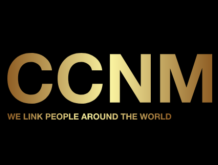Reprint from the Story by Rachel Schilke •19h

Chicago Mayor Brandon Johnson is making changes to a campaign promise that sought to fight homelessness by raising taxes after drawing concerns about the burdens a tax hike could bring on property owners.
Johnson’s proposed tax system would shift away from the city’s flat tax rate on all property sales in Chicago. His proposal, which initially had two tiers, is now looking to break home sales into three categories, causing dissatisfaction among owners of high-end properties.
HOW TO WATCH THE REPUBLICAN DEBATE AND WHAT TIME DOES IT START
The original proposal, which Johnson pitched on the campaign trail, called for two tiers: 0.75% tax on home sales below $1 million and 2.65% on properties above $1 million, per the Chicago Tribune. The revised proposal, under the administration’s “Bring Chicago Home” initiative, will split home sales into three sections: properties under $1 million, properties between $1 million and 1.5 million, and properties above $1.5 million.
Under Johnson’s three-tier plan, owners of properties below $1 million will actually see lower tax rates, with the rate dropping from 0.75% to 0.6%. On the other hand, owners in the second and third tiers would see their tax rates increase to 2% and 3%, respectively, the latter being quadruple the current rate.
City officials said transfer tax increases for the second and third tiers would only apply to buyers, while the first tier would apply to both buyers and sellers.
A marginal rate will be used when calculating the tax rates, according to the briefing materials that Johnson provided to the city’s aldermen. For example, an owner of a property worth one dollar over $1 million will not pay a higher tax rate than an owner of a $999,999 property.
Johnson’s team said in the briefing materials that the lower rate on sales below $1 million would affect almost 96% of property sales in Chicago, according to the Chicago Tribune.
“Bring Chicago Home” is the name of the Johnson administration’s initiative to address the needs of the city’s growing homeless population. It is projected to take in more than $100 million in revenue per year, which is $60 million less than the coalition’s projection from the original proposal.
Johnson said the new proposal will alleviate burdens on property owners and smaller multifamily buildings. Properties exempted from the tiered tax system would be those receiving subsidies from Chicago, the state, the county, or the Chicago Housing Authority, per Chicago Business.
However, owners of large commercial properties downtown are already criticizing the idea of higher taxes, particularly during a period of slow sales and high-interest rates. As a result, the city is experiencing increased property taxes and weakened investors’ demands for Chicago real estate.
Farzin Parang, executive director of the Building Owners and Managers Association, told Chicago Business that the proposed three-tier plan “will hurt the city’s commercial office industry at a historically vulnerable time.”
“Homelessness is a challenge that should be shared by the entire city. Placing the burden on only one industry sector — and one that is at its weakest state in almost a century — is bad public policy,” Parang said.
Michael Jacobson, CEO and president of the Illinois Hotel & Lodging Association, said in a statement that the proposal provides “yet another reason for them to take their business elsewhere.”
“To sustainably increase revenues needed to support important programs, including reducing homelessness, we should instead focus on ways to grow the hotel industry and ensure the long-term success of our city’s vital hospitality and tourism sectors,” Jacobson added.
CLICK HERE TO READ MORE FROM THE WASHINGTON EXAMINER
The proposal is expected to be introduced before the Chicago City Council on Sept. 13. After that, the council could vote as early as October to place the measure on the primary ballot in March 2024. The resolution must be approved by Jan. 3 for it to appear on the ballot.
Voters would then decide whether to accept the modifications to the city’s tax system. If the referendum is approved in March, a new ordinance would need to be approved to dedicate the revenue to homelessness services.
Tags: Brandon Johnson, Chicago, Homelessness, News, Tax
Original Author: Rachel Schilke
Original Location: Brandon Johnson proposes tax hikes on high-end Chicago homes to fight homelessness
